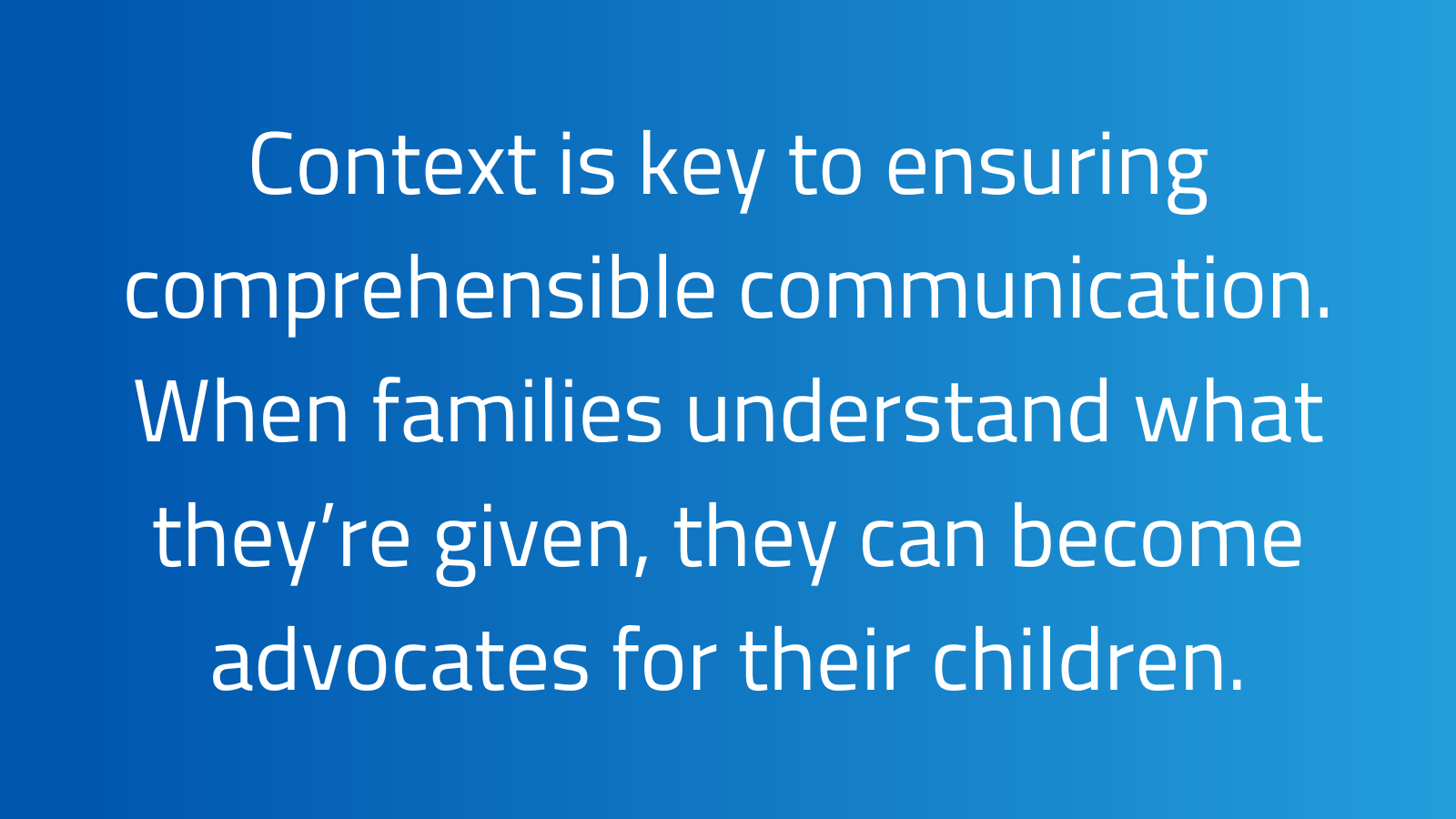Systems for meaningful family engagement


Systems for meaningful family engagement
Families are the most important stakeholders in any student's educational journey. They offer an immense amount of background knowledge and understanding of their child, and are deeply invested in their success in school and the future.
Creating equitable opportunities for multilingual learners can start with sustainable systems that promote meaningful family engagement. Educators can not only leverage this support system, but have the responsibility to ensure that families have access to the information and tools they need to be an active participant in their child's schooling.
Compliant vs. meaningful family communication
English-speaking families have the privilege of being able to more freely discuss their students’ progress with educators without the concern of language barriers. They’re also more likely to have familiarity with the US school system, as well as a circle of peers that increase their social and cultural capital in navigating education. But, it’s the right of every family to receive equitable communication, regardless of home language. It’s crucial to share all necessary information and support with families of ELs so they can understand and have the same opportunity to ask questions or spark conversations.
In the same way that we explicitly teach academic language before a lesson to language learners to ensure they have the tools to master it, we should approach EL family communication. Families deserve the same considerations when it comes to providing access to important information and resources.
When sending home parent letters with updates on grades, test scores, and language development, all of the information should be professionally translated into home language(s). To further aid comprehension, educators should make an additional effort to explain how to interpret the included student data and the available programs at their school or district for support.

Meaningful family engagement in action
Alex Stubbers, the Director of Programs & Services at Saydel Community Schools in Iowa, has seen firsthand the importance of creating connections and opportunities for open communication with their families from diverse backgrounds.
“An area of emphasis for our schools and EL teams are to increase family engagement. This is something that has dropped off since the spring of 2020, and we have been working hard to reestablish it. Ellevation helps us in schools, but it also helps us communicate with our families in a way that families are able to understand. Most of our EL families do not speak English, and the language barrier can prevent some family communication. Ellevation helps ensure that we know what language and how parents prefer to have communication. Additionally, we have relied on students to communicate with their families if they are struggling. One thing we know is that if a student is struggling in school they may struggle to communicate this at home. It's vital for us to ensure the parents understand why their student is struggling so we can all work together to help the student” Stubbers shared.
Saydel Community Schools has a very tight knit Latinx population. Their EL team has been proactive about trying to bridge the gap between family and school to bring that community in. Before COVID, they hosted monthly potlucks to offer a space for their Latinx families and start a dialogue with them.
“During our gatherings we tried to present on various topics,I did a presentation to explain school rules, regulations, and processes while trying to answer any questions from the parents. Things I considered before my presentation were that some of the parents may have never gone through school before, or if they did it might not have been in the US school system,” Stubbers said, “so it's just really providing information and opening that dialogue and communication with our parents.”
In addition to bringing the families of multilingual learners into the school for this chance to connect, their district prioritizes taking that communication to their home settings as well.
“Before each school year starts, our three EL teachers and two of our associates do home visits of every EL student to start the face-to-face communication with their parents or families. We make sure they understand what services we will be providing at school - anything from school lunches to schedules to bus pickup, bus drop off, or more classroom language and instructional support - but it's just trying to engage the families and build that connection.”
This opportunity for EL families to get personalized information and clarification prior to the school year beginning sends the message that their students and families will not be left behind due to language barriers or cultural differences. It shows that the district is invested in their students’ success and prioritizes families as partners in their learning journeys.
For more ideas on creating strong systems for family engagement, access our free toolkit on partnering with families of multilingual students.